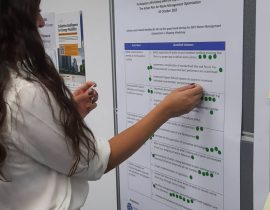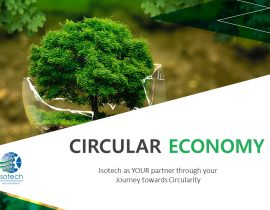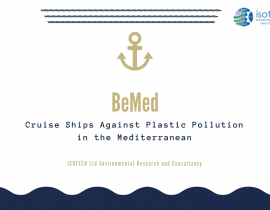
Duration: 01 January 2023 – 31 December 2027
Project Title: An autonomous robotic system coupled with civic activation to address marine litter
Funded By: European Union, Horizon Europe Programme
Topic of the initiative: SeaClear 2.0 attempts to use robots to combat one of the world’s most serious environmental issues: marine litter. Cleaning it up using divers poses danger to human lives and is economically overwhelming.
The new EU-funded initiative will deploy a fleet of smart robots to identify and remove marine debris. The system employs a combination of aerial drones, underwater rovers, autonomous surface ships, and custom-built robotic grippers to do this. Using artificial intelligence, robots can autonomously identify, locate, and collect litter on their own.
The technological core of SeaClear2.0 is a heavily upgraded robotic system for automated litter collection, which can go deeper, lift heavier litter, and tackle surface litter. The project starts by improving sensing with high-resolution sonar, as well as other types of sensors like microplastic and electromagnetic sensors. A smart, maneuverable grapple will be developed that can pick-up larger litter, such as tires, bicycles, or pipes. To carry the bulkier, heavier litter, the scientists will design a new tender with flexible partitioning chambers for different litter fractions, similar to adjustable drawer dividers. Surface litter will be collected via an autonomous mobile team that can work in confined and shallow areas.
With nearly half a billion tonnes of plastics entering European seas every year, technological solutions to identify and remove litter must be coupled with social interventions to prevent and reduce the production and release of litter by citizens. SeaClear2.0 will empower and activate citizens through engagement activities including geographical storytelling, a gamified litter-reporting app., clean-ups, exhibitions, competitions, and artistic installations. The team will also propose better sorting and recycling solutions to increase the value of the litter collected, and will work with local communities to develop novel policy recommendations to address policy gaps.
The new, improved system will be demonstrated in 3 full-scale demonstrations and 3 pilot tests throughout the Mediterranean. In addition, the project will fund 5 subprojects to validate parts of the system and approach in other regions of the Mediterranean basin.
Project Coordinator: Delft University of Technology (Netherlands)
Project Partners: ISOTECH Ltd (Cyprus), Regional Agency Dunea (Croatia), Fraunhofer (Germany), Hamburg Port Authority (Germany), M.Danchor (Israel), Subsea Tech (France), Técnicas y Obras Subacuáticas (TECNOSUB) (Spain), Technische Universitaet Muenchen (Germany), University of Dubrovnik (Croatia), Technical University of Cluj-Napoca (Romania), Veolia (France), and Venice Lagoon Plastic Free (Italy).



